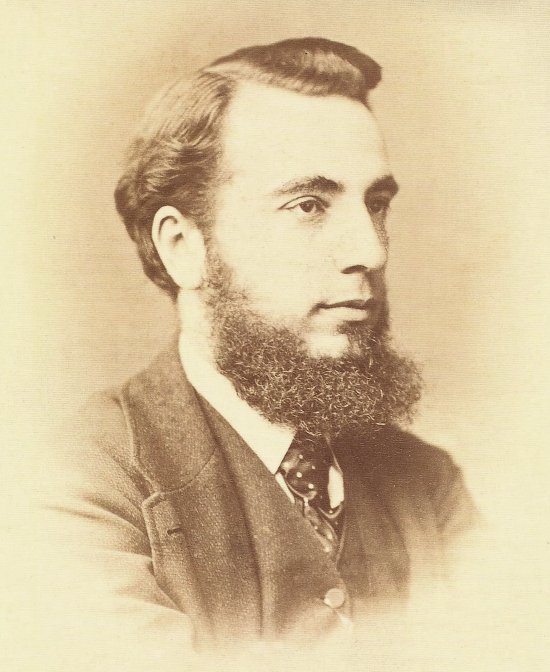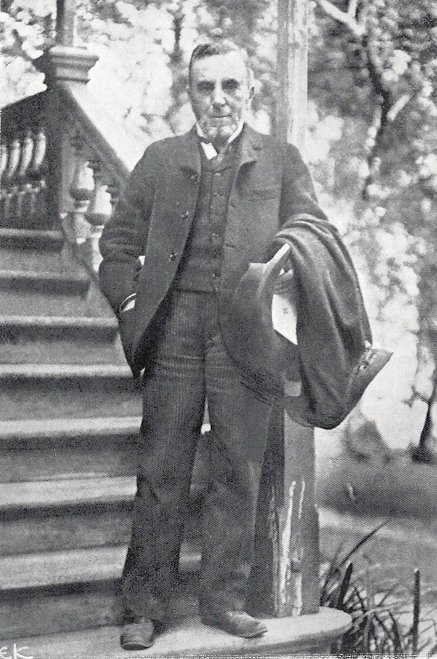Dimitrios Vikelas was not only a poet and novelist, but he was also the first President of the International Olympic Committee. To make the occasion of his birth today, we take a look back at some of his life achievements.
Early Life:
Dimitrios Vikelas was born in Ermoupolis, Syros, on February 15, 1835. His father was a merchant originally from Veria and his name was Emmanuel Bikelas or Bekelas, until he changed his surname to Vikelas. His uncle was the writer Leon Melas, who with his novel “O Gerostathis” nurtured generations of Greek children.
Due to his father’s frequent travels, as well as his own health problems, Dimitrios did not attend school regularly. His mother, however, was very cultured and offered him several homework lessons. He later confessed that he owed his inclination to literature to it.
During one of the many trips of his family, he found himself again in Syros, where he attended the Lyceum of Christos Evangelidis. There, he and his classmate Emmanuel Roidis, published a handwritten newspaper.
At the age of 17, Dimitrios settled in London, first as an accountant in his uncle’s trading business, ‘Mela Bros,’ and then as a partner. His diligence, method, honesty and open-mindedness were appreciated by the London business community.

Dimitrios developed a friendship with the Greek ambassador to London, Spyridon Trikoupis, who played a key role in undertaking and organising the first modern Olympic Games in 1896.
His work in literature:
In his spare time, Dimitrios took classes in Botany and Architecture at University College, while practicing his talent in foreign languages. At the same time, he wrote short stories, poems and translated into Greek the tales of Hans Christian Andersen and the tragedies of Shakespeare.
In 1876, the Mela company was dissolved due to the financial crisis and Dimitrios, having made a respectable fortune and at the age of 41, decided to leave the business and turn exclusively to letters and social action.
In 1877, due to his wife’s illness, he settled in Paris, where he developed a wide circle of acquaintances.
The Olympic Games:
In the summer of 1894, the International Sports Conference was held in the French capital and Dimitrios monitored his work as a representative of the Panhellenic Gymnastics Association.

On June 23, the closing day of the Conference, it was decided to revive the Olympic Games, with the holding of the first event in 1896 in Athens. The contribution of Dimitrios was decisive, acting voluntarily and without the authorisation of the Panhellenic to handle such a serious issue.
Baron de Coubertin’s original idea was for the first Olympic Games to take place in 1900 in Paris, but Dimitrios’ inspirational speech turned the tide.
“… In Athens, we will certainly not be able to organise majestic celebrations, but our many shortcomings will be filled by the cordiality of our reception. We will not offer our guests entertainment worthy of the occasion, but we have to show the ruins of antiquity and lead them to the places where the ancient Greeks held their games,” Dimitrios said in his speech, causing delegates to vote unanimously in favour of Athens.
Dimitrios’ bold initiative aroused enthusiasm in the Greek public and the press and was the reason that contributed to the unexpected success of the revival of the Olympic Games then, but also to the consolidation of the institution in the following years.

Legacy and Death:
In 1894, Dimitrios was also elected the first President of the International Olympic Committee. He remained in this position until 1896, when he was succeeded by Baron de Coubertin. Dimitrios spent the rest of his life in Athens, where he died on July 7, 1908, suffering from an incurable disease.
Dimitrios is considered, together with Georgios Vizyinos, the rapporteur of the ethnographic narrative in Greece.
‘Loukis Laras’ is his most famous work. A prose with realistic and social content, written in 1879, it refers to the effects of the 1821 Revolution on ordinary people. His other important short stories are ‘Papa-Narcissus,’ ‘The Tearful,’ ‘The Ugly Sister,’ ‘Philip Martha’ and ‘Why I Became a Lawyer.’
Dimitrios also founded the ‘House of the Blind,’ the ‘Sevastopoulio School’ and in 1899, the ‘Association for the Distribution of Useful Books’ for the publication of books at a cheap price. After his death he bequeathed his rich library to the municipality of Heraklion, Crete, where it can know be found in the well-known Vikelaia Municipal Library.
Source: San Simera.
